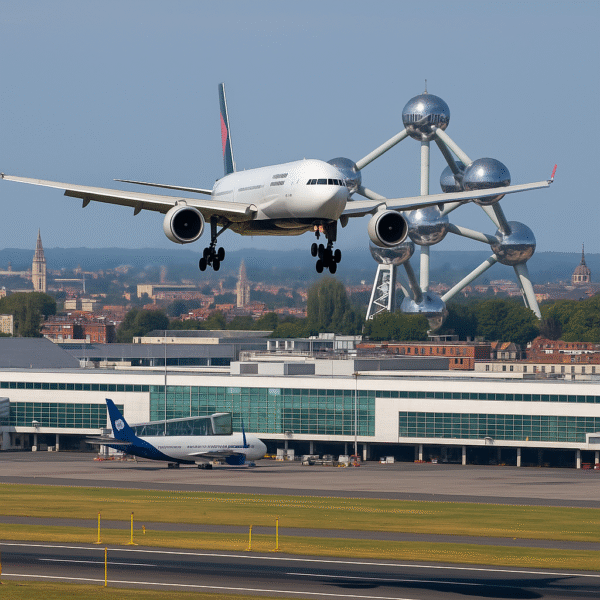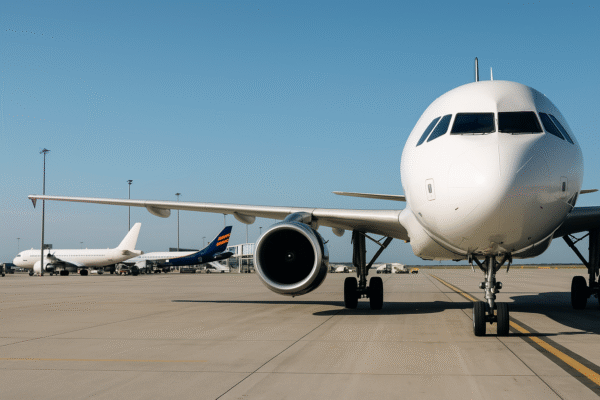China Expands Direct Flights to Brussels, Establishing Belgium as a Strategic Aviation Hub in Europe
Brussels, Belgium – In a bold step to reestablish its global aviation presence, China is rapidly increasing its direct flights to Brussels, signaling a new chapter in transcontinental air travel between Asia and Europe. With major carriers like Air China and Juneyao Airlines leading the charge, Brussels Airport is fast becoming a crucial gateway in Europe for long-haul international traffic, especially post-pandemic.
This surge in connectivity reflects a deliberate pivot in Chinese aviation strategy—one that seeks to diversify beyond traditional European giants like Paris and Frankfurt and tap into high-potential secondary markets. As of mid-2025, multiple new direct routes from major Chinese cities, including Beijing and Chengdu, are being introduced, with more reportedly under planning.
Brussels: At the Heart of the New Transcontinental Aviation Map
Long hailed as the de facto capital of the European Union and a cornerstone of European diplomacy, Brussels is now gaining prominence in international aviation. Its central location in Europe, coupled with robust airport infrastructure and seamless regional connections, makes it an ideal transit point for travelers moving between Asia, Europe, and even North Africa.
Brussels Airport currently handles over 26 million passengers annually (2024 figures, Brussels Airport Company) and boasts connections to more than 200 destinations. Its efficient ground operations, aircraft maintenance (MRO) facilities, and freight-handling capacity further solidify its role as a strategic node in the global air travel network.
Chinese Airlines Make Strategic Moves
Historically, Hainan Airlines was the only Chinese airline offering direct flights to Brussels. Its collaboration with Brussels Airlines helped establish a sustainable transcontinental route network, including the now-suspended Boston–Beijing–Brussels link.
However, the competitive landscape is evolving rapidly. Juneyao Airlines, a Shanghai-based private airline, has already begun operating low-profile flights between China and Brussels. Meanwhile, Air China—one of China’s “Big Three” state-owned carriers—is preparing to launch multiple weekly services from both Beijing Capital International Airport and Chengdu Tianfu International Airport.
This increasing airline presence not only diversifies options for travelers but also introduces competitive pricing, better service standards, and more frequent schedules. Aviation experts suggest Brussels may soon resemble Budapest, which witnessed a similar boom from Chinese carriers in recent years.
Why Brussels Appeals to Asia-Pacific Airlines
Several factors contribute to Brussels’ rising appeal for Asian airlines:
- Geographical Advantage: Centrally located between London, Paris, Frankfurt, and Amsterdam, Brussels offers fast access to major European business and tourism hubs.
- EU Institutions & Global Business: As home to NATO and the European Commission, Brussels draws thousands of diplomats, business travelers, and global officials every year.
- Operational Efficiency: Ranked among Europe’s top airports for punctuality and baggage handling (Eurocontrol 2024), Brussels Airport provides reliable transit and layover experiences.
- Cargo Connectivity: Brussels also serves as a major freight hub, with strong demand for China–EU cargo transport on the back of rising e-commerce and manufacturing ties.
New Opportunities: From Shanghai to Tel Aviv and Beyond
In addition to Brussels, Chinese airlines are looking to revive previously suspended routes and explore underserved corridors. One such example is the Shanghai–Tel Aviv connection, which was once operated by Hainan Airlines and is now seen as a likely candidate for reactivation, particularly with Israel’s inbound tourism recovering steadily.
Brussels could also benefit from emerging three-point connections, serving as a stopover or codeshare partner for new intercontinental routes. This strategy not only increases traffic through Belgium but also strengthens airline partnerships across continents.
China’s Aviation Strategy Shifts Toward Secondary Markets
The recent moves by Chinese carriers reflect a broader evolution in the country’s aviation policy. While traditional hubs like London Heathrow, Paris Charles de Gaulle, and Frankfurt Main remain integral, airlines are now aggressively investing in less saturated, yet strategically valuable, secondary cities.
This approach allows for:
- Lower operating costs
- Reduced airport congestion
- Enhanced market differentiation
- Long-term brand building in niche European regions
With China’s outbound tourism forecast to rebound to 80% of 2019 levels by the end of 2025 (source: China Tourism Academy), the timing for such expansion couldn’t be better.
A Win-Win for Tourism, Trade, and Diplomacy
The growing links between China and Belgium through direct aviation routes have far-reaching implications. They bolster bilateral trade, facilitate easier diplomatic engagements, and open the door for greater tourism exchanges.
Visit.Brussels and Tourism Flanders are already partnering with Chinese travel platforms like Ctrip and Fliggy to promote Belgium’s cultural landmarks—from the Grand Place and Atomium to Bruges and the Ardennes—to a rising wave of Chinese travelers eager to explore Europe beyond its mega cities.
Conclusion: A New Era of China-Europe Connectivity via Brussels
As China reasserts its position in global air travel, its focus on Brussels illustrates a calculated move to deepen ties with Europe through efficient and innovative aviation strategies. For Brussels, this presents a golden opportunity to cement its status as a vital intercontinental gateway—not only for passengers but for commerce, culture, and diplomacy as well.
With Chinese carriers ramping up operations and new routes on the horizon, the skies over Brussels are set to become even busier—and far more globally connected.
For more travel news like this, keep reading Global Travel Wire





















